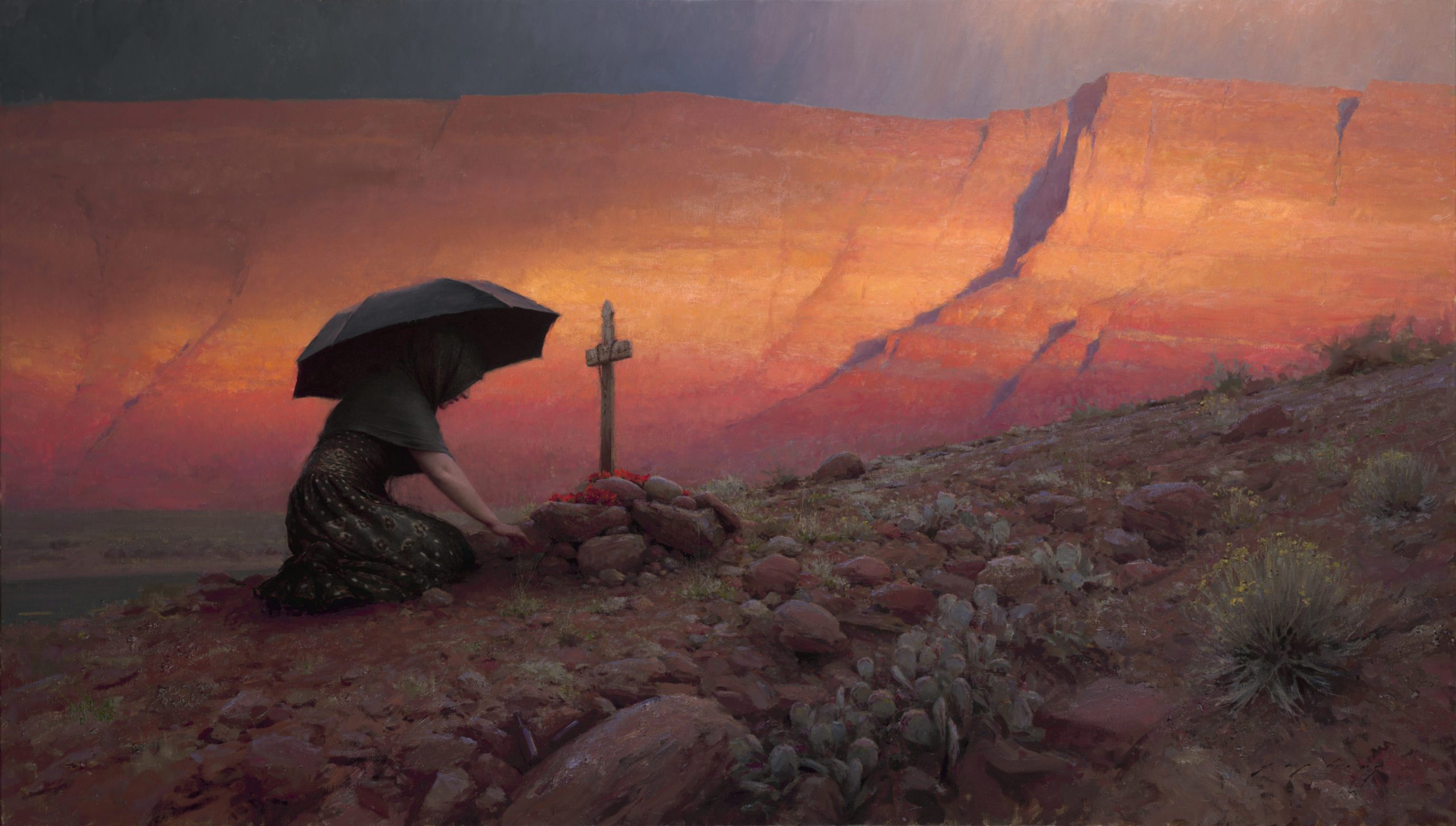By Michael Zakian
In a remarkably short period of time, Jeremy Lipking has emerged as one of the country’s premier realist artists. His talent, which rivals that of the late 19th century painterly realists such as John Singer Sargent, Joaquin Sorolla, and Anders Zorn, is outstanding for a painter of any age.
It is all the more remarkable since he is only 35 years old. Like these great painters of the past, Lipking is a virtuoso artist. His canvases convey the magical aura of convincing imagery emerging out of a field of paint.
Realism has been misunderstood through most of the 20th century as an art of imitation. In truth, when practiced by a painter like Jeremy Lipking, realist painting is a powerful creative force.
Many viewers are drawn to his art, thinking that it looks just like a photograph. Actually Lipking’s vision is the opposite of what a camera does. A photograph tends to flatten an image, reducing all relationships of color and shade to a stiff mechanical pattern.
Lipking’s skill lies in his ability to probe in and around his subject. With a highly sensitive eye, he sees nuances of value and hue that the camera and most people can never see. More incredibly, he is able to translate his highly nuanced vision into a painted image.
Lipking’s true subject is his pictorial fluency. Seeing one of his paintings involves entering into the pictorial world he has created. Like all great realists, he has the ability to generate powerful fictions.
I have had the pleasure of watching Lipking paint on a number of occasions. The experience is both exhilarating and baffling. Lipking begins his paintings in a surprisingly loose, painterly manner—something I never would have expected.
He makes initial marks to find the scale and proportions of his subject. Then he applies a broad underpainting of color to capture the desired hue and value. At this stage, his paintings look almost abstract, consisting of a pattern of large colored shapes.
Lipking’s characteristic brushwork or gesture is what I like to call the “open touch.” What I mean by this is that Lipking applies paint in broad, loose facets, often leaving areas of bare canvas in between. In subsequent additions, the open areas are gradually filled in, creating a breathing lattice-like structure of paint.
In a curious way, the method is somewhat like Cezanne’s manner. But whereas Cezanne emphasized the discontinuity of his touches, Lipking works with close values, so that the result is a seamless veil of color.
The magic occurs in the finish. As he progresses, he gradually refines each area, adjusting relationships of color and adding deft touches to define select elements. He brings certain forms to a razor-sharp level of finish. Other passages are left vague and undefined.
In this interplay of sharp and loose, the painting literally opens up and breathes. This is what makes his art seem so lifelike. Instead of resting as static images, his canvases pulse with the subtle energy of a living thing…
Read the rest of the story at The Epoch Times.
[Featured Image: ‘Flor de Muertos,’ 40 x 70 inches, by Jeremy Lipking, private collection.]















Evan, thank you for this insighful and evocative essay. What immediately struck me was parallel to poetry: probes in and around a subject. Just as the painter generates a powerful fiction, a true poet tells the Truth with Fiction — need not tell his own personal biography to tell The Truth about Life as it is lived. Lipking leaves bare areas and then fills in — poets ask the reader to finish the portrait.
Amicus poeticae,
Neal Whitman
Yes, I’ve always admired art more than the written word actually… but
alas, my path led me to words, not images. The two are truly
intertwined. Amicus poeticae, Evan
Thanks for the essay, I agree with Neal that it is insightful and evocative. It is also interesting to learn of the artist’s methods and note the similarities and differences to the methods my husband employs when he paints. It has always been fascinating to me, seeing layers of color applied to a canvas and watch a miracle take place.